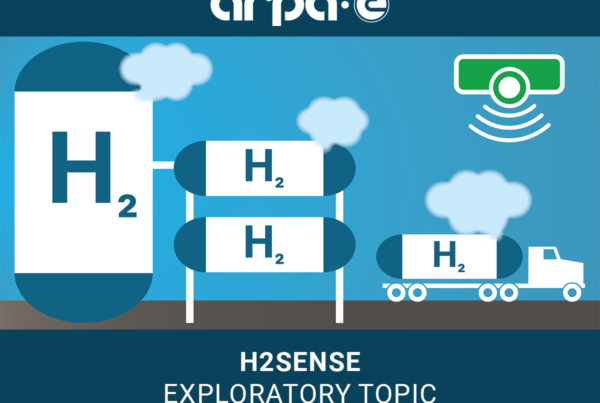
Loughborough University has developed the world’s first lead-acid battery-electrolyser – a low-cost system which makes it viable to use excess renewable energy to produce hydrogen gas. Working with global research and industry partners including the Consortium of Battery Innovation and lead acid battery suppliers Hoppecke and Monbat, the innovation is being accelerated for use in renewable energy-powered microgrids that support the world’s poorest communities without access to electricity or clean cooking. There are also applications for battery-electrolysers in offshore wind.
Green Hydrogen Research Group members Dr Lizzie Ashton and Dr John Barton were presented with the International Award for Academic Excellence and International Collaboration in Hydrogen at the 2024 Hydrogen Awards hosted by Keele University earlier this week.
It was a finalist in three categories representing international partnerships, UK Universities, and HyDEX Midlands-based Energy Research Accelerator (ERA) Universities.
The lead-acid battery-electrolyser is a low-cost system which makes it viable to use excess renewable energy to produce hydrogen gas.
The initial market for the lead acid battery-electrolyser is using excess solar to generate green hydrogen for cooking in developing countries.
Deploying the innovation in every microgrid in Africa would deliver the following major economic, environmental, and societal benefits:
Reduced carbon emissions and improved health especially for women by replacing charcoal cooking fuels and fumes (approximately 700,000 deaths a year are related to poor air quality).
By providing affordable and clean energy to rural populations through solar and battery-electrolyser technology, electric lighting extends useable working hours beyond daylight hours, enabling reading, education and supporting job creation. This also enables cold storage which ensures access to safe and effective vaccines and medicines, and safe and nutritious food.
The accessible market for the lead acid battery-electrolyser is using excess wind to generate green hydrogen.
Deploying the innovation on every offshore wind farm would ensure that wind that could not be turned into electricity and sent to the grid could instead be made into hydrogen.
We can’t control how much the wind blows, so when renewable power sources produce more electricity than the electricity grid can cope with, the wind farm is curtailed or switched off, and that energy is lost.
Professor Dan Parsons, Loughborough University Pro Vice Chancellor for Research and Innovation said: “I am delighted that our green hydrogen research and innovation has been recognised at the Hydrogen Awards which celebrate outstanding international achievements related to hydrogen adoption, implementation, and forward-thinking across various industries and sectors.
We are pleased to be working with excellent international research and industry partners, including the Consortium of Battery Innovation, Hoppecke and Monbat on the next steps that will facilitate and accelerate the major scale up of this exciting battery-electrolyser technology.”
Find out more about Loughborough University’s hydrogen research and innovation capabilities online.
Read the most up to date Fuel Cell and Hydrogen Industry news at FuelCellsWorks




